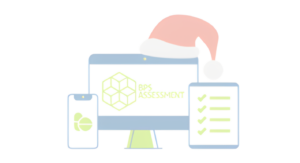As a foundation doctor, sitting the Prescribing Safety Assessment (PSA) exam is a crucial step in demonstrating your prescribing competency. The next sitting of the PSA exam for foundation doctors is on March 20th, and ensuring you’re fully prepared can make all the difference in passing the PSA the first time.
In this guide, we’ll provide practical tips and key resources to help you maximise your study time and confidently approach the PSA exam.
Understanding the PSA Exam for Foundation Doctors
The PSA exam is designed to assess your ability to prescribe safely and effectively, covering eight core domains, including prescription review, drug monitoring, and data interpretation.
As a foundation doctor sitting the PSA, you need to be familiar with BNF resources such as the Medicines Complete British National Formulary (MC BNF), Medicines Complete British National Formulary for Children (MC BNFc) and NICE BNF and BNFc (in the UK), all while being able to implement strong decision-making skills under timed conditions.
Study Tips for Passing the PSA First Time
1. Familiarise Yourself with the PSA Question Formats
The PSA consists of various question types, including:
- Prescription Writing (PWS) – is worth 80 marks (8 questions worth 10 marks each)
- Prescription Review (REV) – is worth 32 marks (8 questions worth 4 marks each)
- Planning Management (MAN) – is worth 16 marks (8 questions worth 2 marks each)
- Providing Information (COM) – is worth 12 marks (6 questions worth 2 marks each)
- Calculation Skills (CAL) – is worth 16 marks (8 questions worth 2 marks each)
- Adverse Drug Reactions (ADR) – is worth 16 marks (8 questions worth 2 marks each)
- Drug Monitoring (TDM) – is worth 16 marks (8 questions worth 2 marks each)
- Data Interpretation (DAT) – is worth 12 marks (6 questions worth 2 marks each)
2. Use High-Quality PSA Preparation Resources
There are several excellent resources available to help foundation doctors sitting the PSA:
- BNF Online & App – essential for understanding drug interactions, contraindications, and recommended dosages. You will have access to MC BNF, MC BNFc and NICE BNF and BNFc links during the exam.
- PSA Blueprint – the blueprint outlines the core topics covered in the exam and why they are tested.
- BPS Assessment’s Free Resources – these 9 Free eLearning sessions (PSA Prep) are designed to help you tackle each question style found in the exam.
- Medical School & Foundation Training Materials – reviewing previous prescribing assessments or resources provided in your training can be beneficial.
3. Develop a Systematic Approach to PSA Questions
When answering PSA questions, use the following structured approach:
- Read the question carefully – Identify key clinical details and patient history.
- Consult the BNF resources where needed – Ensure correct drug selection and dosing.
- Eliminate incorrect answers – Narrowing down options can help improve accuracy.
- Manage your time wisely – Don’t dwell too long on one question; move on and return if necessary.
4. Practice Under Exam Conditions
Time management is critical for passing your PSA exam first time. Simulating exam conditions by:
- Setting a 90-minute timer and completing practice questions without interruptions.
- Review your answers and identify patterns in errors.
- Take mock PSA exams to gauge your readiness and build confidence.
5. Learn from PSA Past Papers & Feedback
Analysing past PSA exam questions can highlight common prescribing pitfalls. Many foundation doctors find that revisiting past PSA practice papers and learning from expert explanations significantly boosts their performance.
Key Takeaways for Preparing for the PSA Exam as a Foundation Doctor
- Start early and practice under timed conditions.
- Use the BNF resources as your primary prescribing reference.
- Familiarise yourself with different PSA question formats.
- Take advantage of high-quality PSA preparation resources.
- Review past PSA questions and learn from mistakes.
With the right approach and preparation, you can pass the PSA first time and demonstrate your prescribing competency with confidence. Good luck to all foundation doctors sitting the PSA on March 20th!




